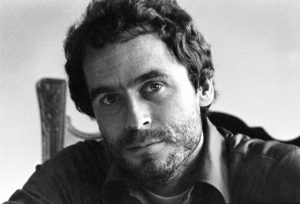
For years, true crime has been considered a low- and middle-brow guilty pleasure, dating back to the 19th century Police Gazette tabloids. To be sure, since then, there have been modern crossover exceptions – books like In Cold Blood, The Stranger Beside Me, and Fatal Vision, which have drawn critical praise and wide readership. But only with the advent of cable television, streaming series, and radio podcasts has the genre emerged as legitimate mass entertainment.
In June of 2018, for example, the CrimeCon festival in New Orleans, sponsored by the Oxygen cable television network, attracted thousands of fans, some wearing t-shirts with images of notorious serial killers. Covering the event for the Washington Post, reporter Britt Peterson noted “the fact that thrill-seeking true-crime fans (and the media serving them) can sometimes forget that… [the] victims were real people, not just characters in a titillating narrative.”
My Career as a True Crime Writer
I’ve been writing about crime – mostly murders – off and on for major newspapers on both U.S. coasts for nearly 50 years. As a young journalist, I covered the trials of serial killer Ted Bundy (pictured above) and Green Beret Dr. Jeffrey MacDonald. I’ve also written about killings involving racial injustice, from the Greensboro Massacre in 1979 to Trayvon Martin in 2013. (Each of these last two, coincidentally, took place not far from where I was then living, first in North Carolina and then in Central Florida.)
So, much of whatever professional (and yes, financial) success I have had as a writer I owe to my reporting on this dark side of human nature. In addition to my newspaper and radio coverage, I’ve written numerous magazine articles and two true crime books of my own and reviewed more than a dozen books written by others. I’ve appeared on tabloid TV show episodes and a docu-series.
With publication of Drifting Into Darkness and a new edition of Met Her on the Mountain, I’m scheduled to appear on some of the numerous true crime podcasts. At their best, these podcasts and docu-series act as “an extension of the legal process and as a type of investigative journalism,” wrote the New Yorkermagazine’s television critic Emily Nussbaum. “In the past several decades, true-crime documentaries have emerged as a kind of secondary appeals system.”
Frederick Wertheim, the mid-20th century psychiatrist best-known for his discredited views on how comic books inspire violence, was more perceptive on the value of covering a sensational crime that comes to trial. They can, he wrote, throw “a searchlight on the society in which it occurs, and we become aware of a fixed moment in social history.”
Decades later, Marilyn Stasio, longtime mystery reviewer for the New York Times, had a similar take. The goal of any true-crime writer, she observed, is “to use a murder investigation as a portal to a wider world, providing historical and political context.”
True Crime as Entertainment
For all this, even I am sometimes baffled by the true crime genre‘s enduring appeal as popular culture. And I’m not alone. In November of 2021, the New York Times devoted several insightful articles about this subject as entertainment.
“Since the advent of the printing press,” wrote Opinion Editor Spencer Bokat-Lindell, “people have nursed a morbid fascination for reading about humanity’s capacity for evil. But in the past decade or so, true crime — that once relatively niche genre of storytelling that spins real accounts of wrongdoing into narrative gold — has become a cultural behemoth: Sales of true-crime books in the United States have skyrocketed. In the world of documentaries, true crime is now both the most in-demand and the fastest-growing genre. When I checked my podcast app late last week, four of the five top-charting shows were about murder.”
He added, “What emotional hunger is all this ravenous consumption of true crime satisfying? And in the satisfying, are we making our minds — and our politics — sick?”
While I have no interest in biting the hand that has fed me so well over the years, I have some troubling concerns. In my experiences of reporting and researching sensational cases, sitting in the courtroom, reviewing police and autopsy reports, scanning old newspaper clippings and interviewing witnesses, I have encountered few criminal masterminds (Bundy is an exception). Mostly, killers are stupid, banal, and the opposite of charming (again, Bundy and MacDonald are exceptions). And I have never found them entertaining.
Don’t miss my recent podcast interview about Drifting into Darkness with The Minds of Madness.
Join me for a free virtual event with Malaprop’s Bookstore & Cafe on Wednesday, April 6th at 6 p.m. EST. Click here to RSVP.
Additionally, I will be at the Madison County Public Library (1335 N. Main Street) on Tuesday, April 5th at 5 p.m. EST; Penland & Sons Department Store (50 S. Main Street) on Thursday, April 7th from 2 to 4 p.m. EST; and Chestnut Hall in Hot Springs (64 S. Spring Street) on Thursday, April 7th from 6 p.m. EST. No registration required. I hope to see you soon!
Follow me on Facebook, Twitter, and Instagram to learn more. The quickest way to reach me is by email: osopinsky@gmail.com.